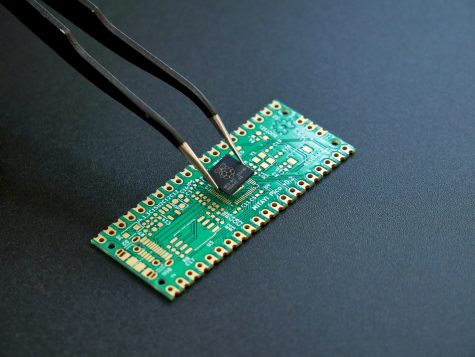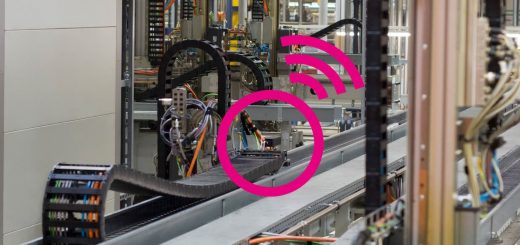Who makes semiconductor manufacturing equipment?
Semiconductors are arguably the backbone of modern technology, powering everything from smartphones to advanced computing systems. At the heart of this industry are the companies that manufacture the equipment used to produce semiconductors. Here, we explore how igus® UK contributes to the semiconductor manufacturing equipment industry.

What are semiconductors?
Semiconductors use materials with electrical conductivity between a conductor and an insulator to create modern electronics such as memory chips for smartphones or medical MRI scanners.
igus® products are used throughout most sectors of industry, including semiconductor manufacturing. Their products are designed to improve technology and reduce costs, making them a valuable partner for semiconductor manufacturers.
Products for the Semiconductor Industry
We offer a range of products specifically designed for the semiconductor industry and tailored to meet the requirements of cleanroom environments, which are essential for semiconductor manufacturing.
- Energy Chains: Used to guide and protect cables and hoses in dynamic applications. These energy chains are made from high-performance polymers that are abrasion-resistant and have low gas release, making them suitable for cleanroom environments.
- Cables: We have a variety of CFCLEAN cables that are designed for high flexibility and durability. These cables provide reliable power and data transmission in semiconductor manufacturing equipment.
- Bearings: Maintenance-free and lubrication-free, igus® slewing ring bearings prevent contamination in cleanroom environments. These bearings are used in various stages of semiconductor manufacturing, from wafer handling to assembly.
Where would you find semiconductor technology?
Liquid handling applications might use igus trapezoidal lead screws and trapezoidal lead screw nuts.
Advanced Driver Assistance Systems (ADAS) like adaptive cruise control use semiconductor technology to analyse data from sensors and deliver commands that control the speed or steering of a vehicle.
Medical Machinery like pacemakers have semiconductors that are used in the microcontrollers that regulate heartbeats!
The future of semiconductor technology
This industry is constantly developing and making progress with technology that pushes the limit of what is possible. Research into new materials is ongoing to find those with superior performance characteristics in comparison to traditional materials and enable high-power and high-frequency applications to be optimised.
These materials are researched in depth to ensure the most sustainable options are available as environmental concerns grow. Developing eco-friendly materials and focussing on creating energy efficient production processes helps pave the way for a greener future.
Read more on the topic of innovation.
Rules and Regulations
There are several regulations that the semiconductor manufacturing industry contend with from environmental rules to trade and export controls. In 2023, the UK government released a £1 Billion strategy to strengthen the sector over the next two decades though, proving that it is a valuable and necessary industry to invest into. Read more here
If successful, their strategy aims to position the UK as a leading manufacturer of semiconductor technology which supports expansion into areas like AI and quantum computing.
So, who makes semiconductor manufacturing equipment?

We’ve discussed what semiconductors are, where you would find them out in the world and what the future of this innovative technology looks like. igus® have products across a range of industries just like this one that are often out of sight, and as such, out of mind.
Small but mighty, semiconductor technology helps to create essential equipment and applications that we all might take for granted. Even though items like smartphones are now so commonplace, the task of making them involves a great deal of intricacy and stringent standards must be met.
igus® have a product range that is geared up to meet a variety of requirements from industries just like semiconductor manufacturing.



